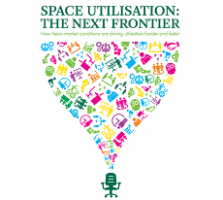October 22, 2015
UK’s digital leaders set to deliver £92 billion boost to economy 0
 A new report from Virgin Media Business and Oxford Economics claims that the UK’s ‘Digital Leaders’ are set to use digital technology deliver a massive boost to the UK economy in the very near future. The study of 1,000 companies employing 470,000 people claims that the UK economy could see an increase of 2.5 percent in GDP (£92 billion) and create more than a million new jobs over the next two years. According to the respondents, they had already increased their revenues by 4.4 per cent and reduced costs by 4.3 per cent over the past year by making better use of digital technology, generating an estimated £123 billion contribution to the UK’s economy, equivalent to 3.4 per cent of GDP. In terms of jobs, 44 per cent of executives don’t expect any jobs to become obsolete and, across the economy, companies anticipate hiring 1.1 million employees as a result of digital investments.
A new report from Virgin Media Business and Oxford Economics claims that the UK’s ‘Digital Leaders’ are set to use digital technology deliver a massive boost to the UK economy in the very near future. The study of 1,000 companies employing 470,000 people claims that the UK economy could see an increase of 2.5 percent in GDP (£92 billion) and create more than a million new jobs over the next two years. According to the respondents, they had already increased their revenues by 4.4 per cent and reduced costs by 4.3 per cent over the past year by making better use of digital technology, generating an estimated £123 billion contribution to the UK’s economy, equivalent to 3.4 per cent of GDP. In terms of jobs, 44 per cent of executives don’t expect any jobs to become obsolete and, across the economy, companies anticipate hiring 1.1 million employees as a result of digital investments.





















 According to an analysis of the just-released 2014 American Community Survey (ACS) conducted by
According to an analysis of the just-released 2014 American Community Survey (ACS) conducted by 











October 26, 2015
An updated green building standard designed to meet wider business objectives 0
by Sue Gregson • Comment, Facilities management, Legal news, Property
(more…)